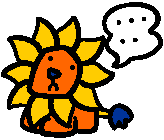
---------------------------------------------------------------------
#57 農作物の生産においても、収穫の際や輸送の際などに動物の死をまねいて
いるのではないですか?
---------------------------------------------------------------------
おそらくこの質問者が、これに続いて主張したいのは次の様なことで
しょう:食べ物の一形態である農作物を生産するにも動物の死を引き起
こしているのだから、別の食べ物の形態である肉を生産する行為(飼育
や屠殺など)を、動物の死を引き起こすからと言って、非難するのはお
かしいのではないか? :さて、この意見はどう考えればいいでしょう
か。
農作物の生産の過程において、付随的な(或るいは、偶発的で意図し
ない)動物の死が起こっているのは確かです。同様に、畜産業において、
意図的な動物の死が起こっているのも確かなことです。
偶発的な死をまねく行為を認めたからと言って、意図的な死をもたら
す行為を認めなければならないわけではありません(意図的かどうかと
いう事を検証するためには、計画の成功がその結果の程度によって測れ
るかどうかを、考えてみればいいでしょう。この場合で言えば、農作物
の生産の成功は、偶発的な死の数では図れません;逆に、畜産業の場合
には事業の成功は屠殺され、消費された動物の数によって直接、測る事
ができます)
偶発的な行為と意図的な行為とを一緒にするのが、無理な事は明らか
にしましたが、それでもなお、どういう根拠で偶発的な死を正当化でき
るのかと問う事はできます。ただし、これは動物の権利の問題に限らな
い、一般的な道徳の問題であるという事を分かっておく必要があります。
その答えはつきつめると、ある特定の状況においては、罪なきものの
権利よりも他のものが優先される場合もあり得るということになります。
もし、権利どおしが本当に衝突してしまう場合には、最も数が少ない者
の権利よりも他の者の権利の方を優先させるのというのが、合理的な原
則です。そうは言っても、この様な罪なき者の権利を侵害する場合には、
その害を最小限に留める様にする責務があります。
この観点から、畜産業よりも農作物を生産する方が望ましい事には、
疑いの余地がありません。畜産業においては動物を大きくするために
(人間が直接、農作物を消費する場合にくらべて)はるかに多くの農作
物を必要とする分、偶発的な死は増えることとなります。
それに加えてもちろん、生産物となる動物の意図的な死も増えます。
最後につけ加えると、多くの人の支持を集めている有機農法や、今よ
りもっと人の手をかける農業は、偶発的な死を減らすことにつながりま
す。私たちには生きていく責任もありますが、同時に責任を持って生き
ていかなくてはいけないのです!
DG
参照:
#58、
#59

...............



-----------------------
#57 Don't crop harvest techniques and transportation, etc., lead to the
death of animals?
-----------------------
The questioner's probable follow-up is to assert that since we perform
actions that result in the death of animals for producing crops, a form of
food, we should therefore not condemn actions (i.e., raising and slaughter)
that result in the death of animals for producing meat, another form of
food. How do we confront this argument?
It is clear that incidental (or accidental, unintended) deaths of animals
result from crop agriculture. It is equally clear that intentional deaths of
animals result from animal agriculture. Our acceptance of acts that lead to
incidental deaths does not require the acceptance of acts that lead to
intentional deaths. (A possible measure of intentionality is to ask if the
success of the enterprise is measured by the extent of the result. In our
case, the success of crop agriculture is not measured by the number of
accidental deaths; in animal agriculture, conversely, the success of the
enterprise is directly measured by the number of animals produced for
slaughter and consumption.)
Having shown that the movement from incidental to intentional is not
justified, we can still ask what justifies even incidental deaths. We must
realize that the question does not bear on Animal Rights specifically, but
applies to morality generally. The answer, stripped to its essentials, is
that the rights of innocents can be overridden in certain circumstances.
If rights are genuinely in conflict, a reasonable principle is to violate
the rights of the fewest.
Nevertheless, when such an overriding of the rights of innocents is
done, there is a responsibility to ensure that the harm is minimized.
Certainly, crop agriculture is preferable to animal agriculture in this
regard. In the latter case, we have the added incidental harm due to
the much greater amount of crops needed to produce animals (versus feeding
the crops directly to people), AND the intentional deaths of the produced
animals themselves.
Finally, many argue for organic and more labor-intensive methods of crop
agriculture that reduce incidental deaths. As one wag puts it, we have a
responsibility to survive, but we can also survive responsibly!
DG
SEE ALSO: #58-#59




